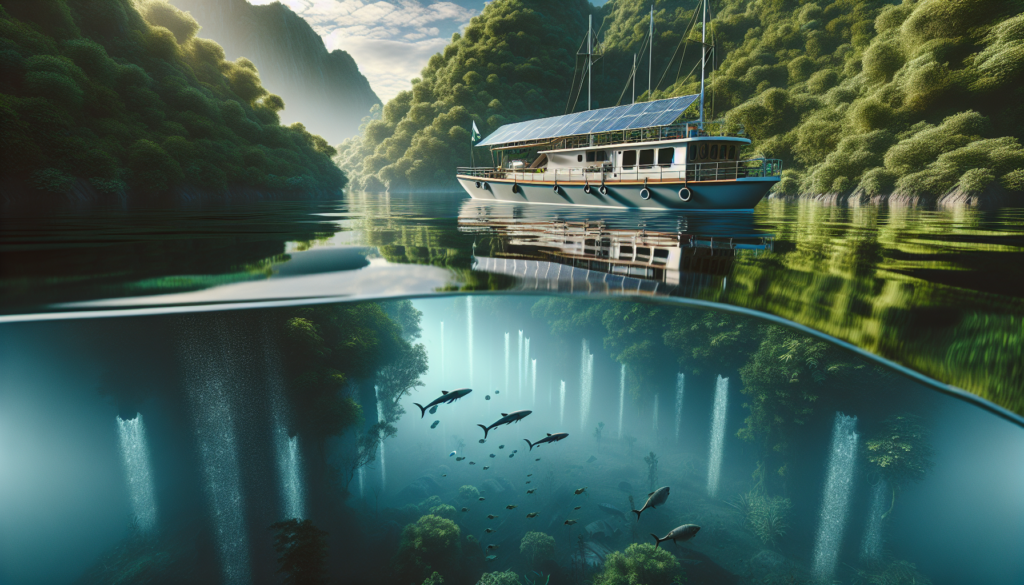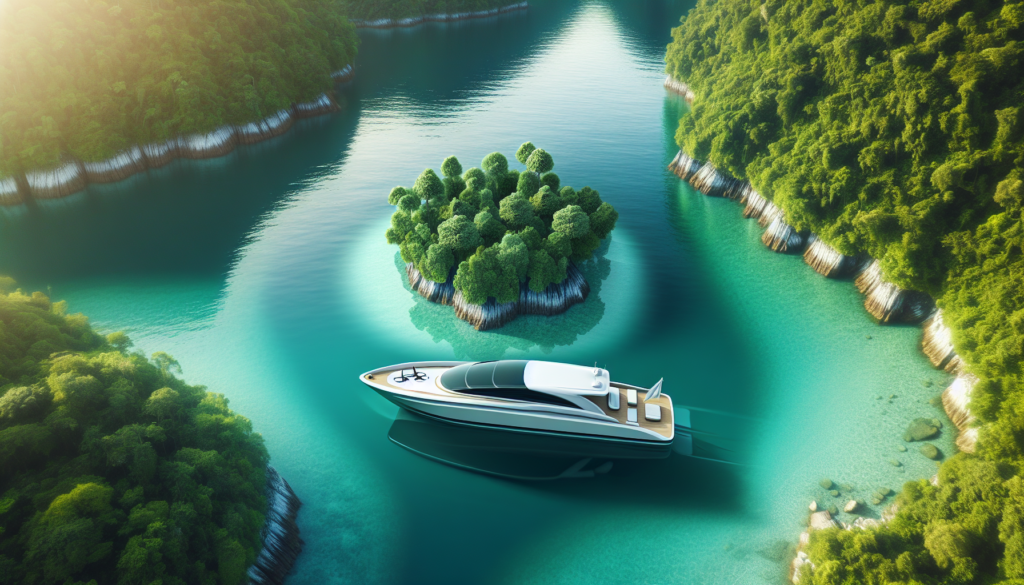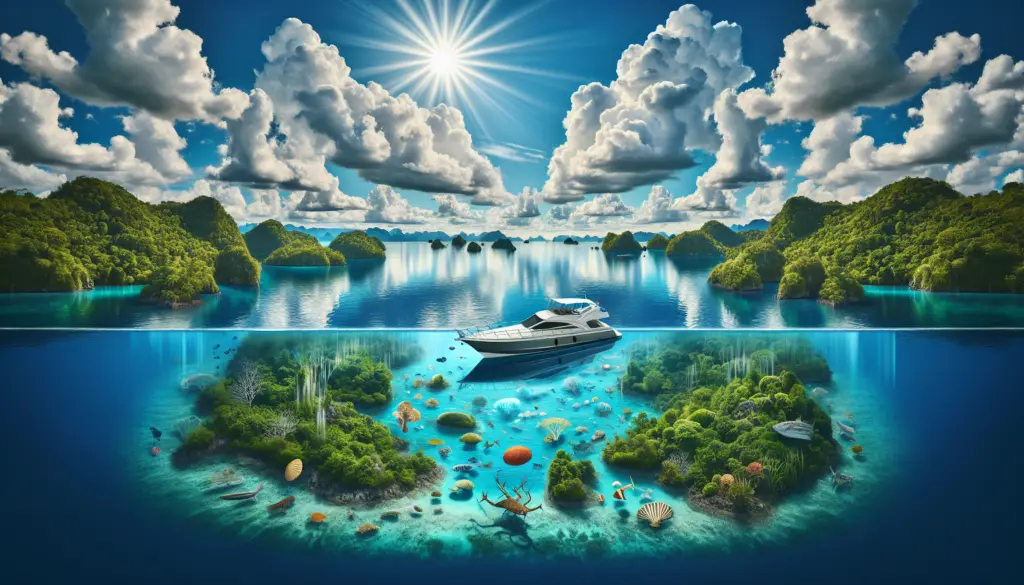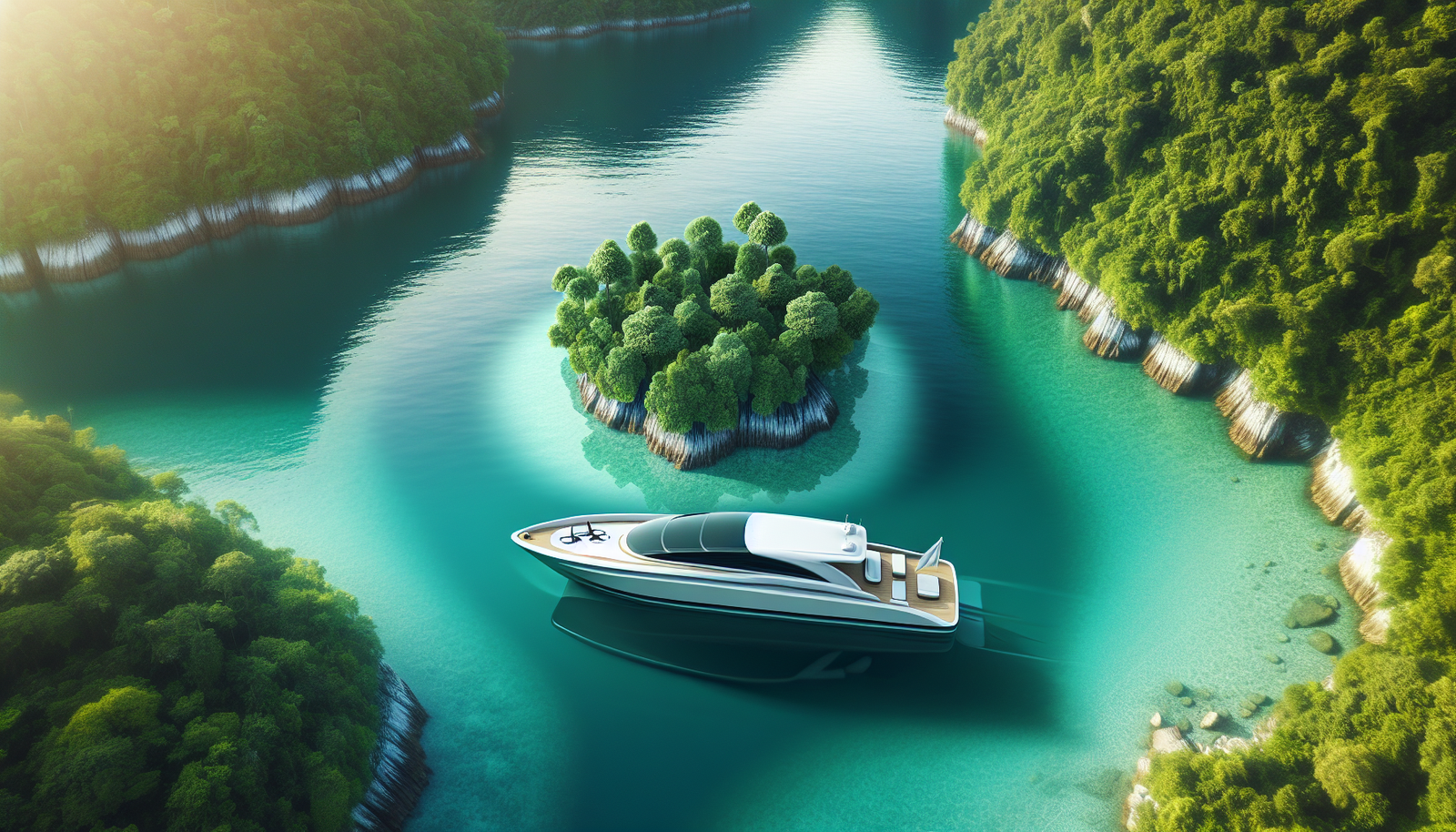As a boat owner or enthusiast, you might not realize the impact boating habits can have on water quality. The article “Improving Water Quality Through Eco-Friendly Boating Practices” will enlighten you about how some common boating practices can degrade water bodies and what you can do differently to make your favorite pastime more eco-friendly. You’re about to explore the essential techniques and strategies to minimize your carbon footprint and help maintain our precious water resources. Buckle up for an informative journey towards better water stewardship.

Understanding the Impact of Boating on Water Quality
Boating, while undoubtedly a popular pastime, can have significant consequences on water quality. Many consider oceans, lakes, and rivers as limitless sources of clean water, but it’s not quite so simple. Remember, these bodies of water are not just vast expanses of liquid, but complex systems which are severely impacted by our activities.
The role of boating in water pollution
Boating, in particular recreational boating, is one such activity that contributes to water pollution. You might wonder, “How does this fun, seemingly harmless activity cause pollution?” Well, on the surface, this might look harmless but from the paint on the hull to the fuel in the engine, boats can release pollutants that contaminate water bodies and impact aquatic life.
Negative effects on marine life and ecosystem
Pollutants from boating activities can drastically reduce the quality of the water, affecting the delicate balance of marine ecosystems. Parts of boats can scrape against corals and marine plants, damaging or even destroying them under adverse conditions. Fuel leaks and exhaust emissions introduce harmful substances such as heavy metals and petroleum hydrocarbons into the water. These can kill marine life directly or lead to long-term degradation of their habitats.
Specific pollutants introduced by boating activities
Various boating activities introduce specific pollutants to water bodies. Your motorboat’s exhaust, for example, spews out carbon monoxide, while the scrubbing off of antifouling paint from the hull releases toxic biocides. Bilge water, boat cleaning products, and waste from onboard toilets can also contribute to the problem, adding to the cocktail of pollutants that affect water quality.
Eco-Friendly Fuels and Lubricants
Just as we’ve adapted our land vehicles to be more eco-friendly, boating also needs a similar transition. Let’s delve into a few greener fuel and lubricant options.
Exploring biofuels and their impact
Biofuels represent an attractive alternative to conventional fossil fuels. Produced from organic matter like plant oils and animal fats, biofuels are renewable, and when combusted, they emit fewer harmful substances. They’re also biodegradable, meaning if minor spills do happen, the impact is much less severe as compared to petroleum-based fuels.
The benefits of using biodegradable lubricants
Similar to biofuels, biodegradable lubricants, made from synthetic esters, vegetable oils and other safer compounds, are much kinder on water bodies since they break down naturally. They also pose fewer risks to marine life in the event of slight spillage.
Transitioning from traditional to eco-friendly fuels and lubricants
The transition to eco-friendly fuels and lubricants might seem overwhelming, but it doesn’t need to be. You can start by gradually replacing your current fuel with biofuel and changing your oil to a biodegradable variant. It’ll be a meaningful change that not only benefits the environment but also improves the lifespan of your boat’s engine.

Proper Boat Maintenance
Maintaining your boat is not just about enhancing performance and longevity, but it’s also about preserving the environment.
Reducing the risk of leakage and spills during maintenance
As prevention is always better than cure, routine maintenance checks can catch leaks and potential spills before they become a problem. For tasks like changing oil or coolant, take care to prevent spills, and always have absorbent pads at hand for quick clean-ups.
Using eco-friendly cleaning products and paints
Opt for eco-friendly products when cleaning and painting your boat. Avoid phosphates and chlorine in cleaning agents, and choose paints with minimal VOCs (volatile organic compounds). Many of these green alternatives are just as effective as their conventional counterparts, and won’t lead to harmful residue being washed into the water.
Enforcing regular checks and servicing
Regular checks and servicing are vital. Set a schedule and stick to it. This will not only keep your boat in better condition but also reduce the chance of breakdowns or leaks that could harm water quality. It might just save you a costly repair bill as well!
Responsible Boating Habits
The way we handle our boats can make a significant difference. Here are some habits you can adopt today:
Avoiding sensitive marine areas
Steer clear of sensitive marine areas like coral reefs and sea-grass beds. They are crucial to the health of our oceans, and even minor disturbances can cause significant damage. Remember, we are visitors in these marine environments, so let’s treat them with respect and intrigue.
Minimizing wake and prop wash to reduce shoreline erosion
Our actions on the water affect its edges too. High speeds can lead to substantial waves or ‘wake,’ causing erosion on shorelines and disturbing habitats. Slower speeds ensure a lesser wake and consequently, lesser damage.
Adopting slower speeds to minimize fuel consumption
It’s not just the shoreline that benefits when we slow down; your fuel consumption decreases as well. Lower speeds mean less exhaust fumes and noise pollution, making for a quieter, less disruptive, and a vastly more relaxing boating experience.

Alternatives to Traditional Boating Methods
Adopting eco-friendly boating extends beyond enhancing your current boat. Let’s explore some innovative alternatives:
Introduction to electric boats
Just as electric cars are revolutionizing road travel, electric boats are offering a new approach to water travel. Silent, emission-free, and cheaper to run, electric boats are a compelling eco-friendly option for the conscientious boater.
The role of sail and human-powered boats
In the quest to reduce our carbon footprints, perhaps we should revisit traditional boating methods like sailing or paddling. They are silent, clean, and add an element of physical activity to boot.
Utilizing hybrid technology in boats
For those who feel a reluctance to fully relinquish the convenience of combustion engines, hybrid boats could provide a happy medium. They run on a combination of fuel and electricity, allowing a reduction in emissions without compromising on range or speed.
Sustainable Boat Building Materials
What a boat is made from matters just as much as how it operates.
Reducing the use of toxic materials in boat construction
Traditional boat-building materials like fiberglass and certain marine paints can be harmful to the environment. It is crucial to consider alternatives that are less toxic and possibly easier to recycle at the end of a boat’s life.
Promoting the use of recyclable and renewable materials
Sustainable alternatives such as FSC-certified wood, natural fiber-reinforced composites, aluminum, and recyclable plastics could play a significant role in the boat-building industry’s future.
The future of sustainable boating
Visionary boat-builders are now investing in pioneering techniques and sustainable materials, leading to a positive change. With the awareness and demand for eco-friendly boats growing, the future of sustainable boating looks immensely promising.

Effective Waste Management
Proper waste management is crucial on board to prevent harmful substances from polluting water bodies.
Importance of proper on-board waste disposal
Everyone on board a boat must understand the need to dispose of their waste properly. Whether it’s food scraps, plastic wrappers, or human waste, it all needs to be disposed of properly to prevent negative impacts on the marine ecosystem.
The damage caused by illegal dumping
Illegal dumping of waste at sea is a significant issue, causing harm to marine life and polluting our waterways. Remember, what goes into the water, often ends up in our food chain.
Introducing compostable waste solutions
Composting toilets and biodegradable waste bags are two solutions that could potentially reduce the environmental impact of waste in boating. These alternatives not only decrease the amount of waste that ends up overboard but also decrease reliance on harmful chemicals used in traditional on-board waste systems.
Recycling practices on boats
Lastly, just as you would recycle at home, applying the same practices on a boat is paramount. Separate recyclables and when possible, dispose of them at appropriate recycling facilities onshore.
Engaging in Marine Conservation Activities
As boaters, our interaction with the marine world gives us a unique insight into its needs and challenges, making us perfect advocates for its conservation.
Boat-based marine cleanup efforts
Join or organize boat-based clean-up operations. A large number of volunteers combined with the mobility of boats can truly make a noticeable difference in reducing ocean litter.
Supporting marine preservation initiatives
Support initiatives that aim to preserve marine environments. This could be through making donations, volunteer work, or simply by spreading the word about these initiatives.
Encouraging citizen science through boating
Tap into citizen science projects that monitor marine health. Your regular boating trips could easily include simple actions like recording water or wildlife conditions, helping scientists gather important data.
Legal Regulations to Promote Eco-Friendly Boating
Laws and regulations play an important role in promoting sustainable practices in boating.
Existing laws on water pollution from boats
Several laws are already in place that help reduce pollution from boating. These range from regulations on boat design, engine emissions standards and waste discharge restrictions. Compliance with these laws is not just a legal obligation but an important step towards more sustainable boating.
Potential impact of stricter regulations
While many might view stricter regulations as limiting, they could actually spur the development of innovative, clean technologies within the boating industry. This can ultimately lead to better, more environmentally friendly boating experiences.
Promoting legal compliance among boaters
Encouraging awareness of the existing laws and potential penalties for non-compliance can as well play a significant role in promoting eco-friendly boating. All boaters should familiarize themselves with these regulations and understand why they matter.
Educational Outreach for Eco-Friendly Boating
Education is key to fostering responsible behavior among boaters and the wider public.
The importance of boater education
While laws are important, education lays the foundation for responsible and conscious behavior. Understanding the impact of our actions is the first step towards making positive changes.
Implementing boating workshops and seminars
Workshops and seminars can provide practical, hands-on knowledge in a range of areas, from eco-friendly maintenance methods to understanding marine ecosystems. Boating schools and clubs should prioritize this within their educational activities.
Creating awareness through community engagements
Creating awareness isn’t just about targeting active boaters but engaging with communities as a whole. Participation in local events, forums, or social media can go a long way in sparking interest and action towards cleaner, greener boating.
As we’ve seen, being eco-friendly on the water involves a host of factors. From the very beginning of building a boat to its everyday operation, boaters have a multitude of opportunities to make a positive impact. Let’s all do our part and sail toward a cleaner, healthier marine environment. After all, our actions today will determine the health of our waters tomorrow.

